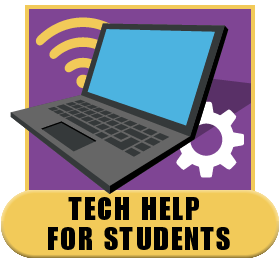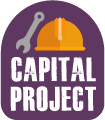Speech and Language Resources
The following information outlines the SLPs role in the school setting and may help answer your questions related to typical speech and language development.
What types of speech and language disorders affect school-age children?
Children may experience one or more of the following disorders:
- Speech sound disorders – (difficulty pronouncing sounds)
http://www.asha.org/public/speech/disorders/SpeechSoundDisorders.htm
http://www.talkingchild.com/speechchart.html
- Language disorders – (difficulty understanding what they hear as well as expressing themselves with words) http://www.asha.org/public/speech/
- Cognitive-communication disorders – (difficulty with thinking skills including perception, memory, awareness, reasoning, judgment, intellect and imagination)
- Stuttering (fluency) disorders – (interruption of the flow of speech that may include hesitations, repetitions, prolongations of sounds or words)
http://www.asha.org/public/speech/disorders/stuttering.htm - Voice disorders – (quality of voice that may include hoarseness, nasality, volume)
http://www.entnet.org/?q=node/1435
Do speech-language disorders affect learning?
Speech and language skills are essential to academic success and learning. Language is the basis of communication. Reading, writing, gesturing, listening, and speaking are all forms of language. Learning takes place through the process of communication. The ability to communicate with peers and adults in the educational setting is essential for a student to succeed in school.
How may a speech-language disorder affect school performance?
Children with communication disorders frequently do not perform at grade level. They may struggle with reading, have difficulty understanding and expressing language, misunderstand social cues, avoid attending school, show poor judgment, and have difficulty with tests.
Difficulty in learning to listen, speak, read, or write can result from problems in language development. Problems can occur in the production, comprehension, and awareness of language sounds, syllables, words, sentences, and conversation. Individuals with reading and writing problems also may have trouble using language to communicate, think, and learn.
How do parents and school personnel work together to insure that children get the speech-language support they need?
Parents and teachers should contact their buildings SLP with any speech and language questions or concerns. Screening, assessment, and treatment of communication disorders may involve cooperative efforts with:
- parents
- speech-language pathologists (SLPs)
- audiologists
- psychologists
- classroom teachers
- special education teachers
- guidance counselors
- physicians
- dentists
SLPs work with diagnostic and educational evaluation teams to provide comprehensive language and speech assessments for students. Services to students with speech-language disorders may be provided in individual or small group sessions, in classrooms when teaming with teachers or in a consultative model with teachers and parents. SLPs integrate students’ speech-language goals with academic outcomes and functional performance.
Source: www.asha.org



